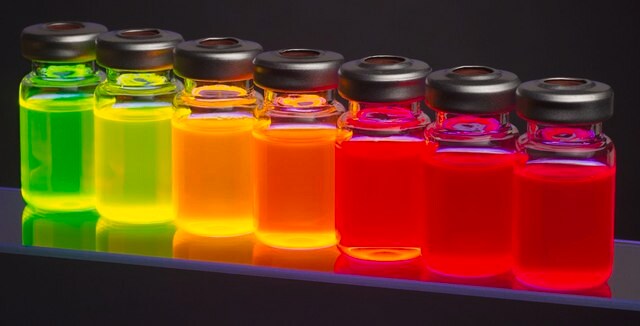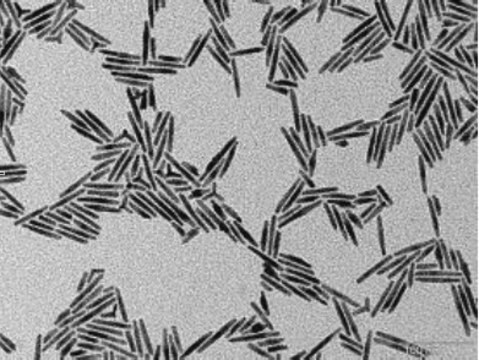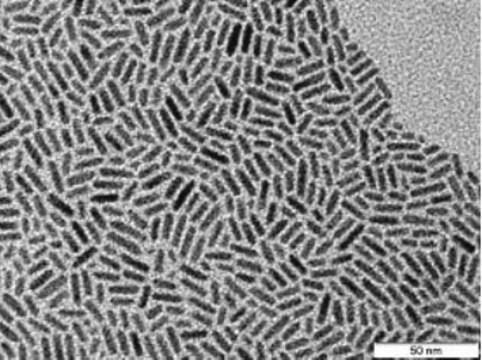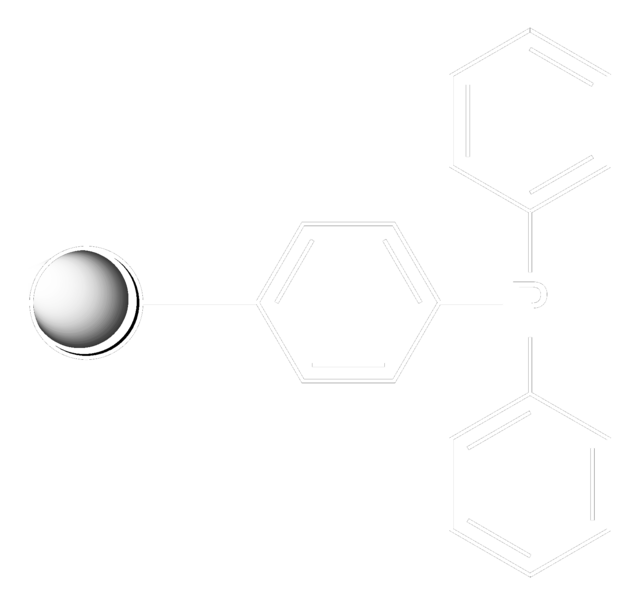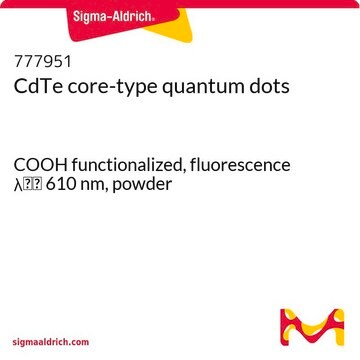748080
CdSe/ZnS core-shell type quantum dots
stabilized with octadecylamine ligands, fluorescence λem 560 nm, solid
Synonyme(s) :
Artificial atoms, Fluorescent nanocrystals, QDs
About This Item
Produits recommandés
Description
Extinction Coefficient- 250000 at first peak position
Niveau de qualité
Forme
solid
Poids mol.
Mw 79000
Taille
6.8 nm , Inorganic size of QDs(core+shell)
Fluorescence
λem 560 nm
Vous recherchez des produits similaires ? Visite Guide de comparaison des produits
Application
Protocol to make QD solutions (dispersing QDs into solutions):
1. Weigh desired amount of the quantum dot powder and put it in a glass vial;
2. Add desired amount of the solvent, i.e. toluene, chloroform, hexane, etc. (mostly non-polar organic solvents) in the vial and shake the vial;
3. If there is any solid left in the vial after shaking, sonicate the vial for 30~60 seconds to get the quantum dot powder well dispersed. If required dilute the solution further.
Material has a shelf life of around 3 years if stored properly. Store at room temperature (4-25 °C); do not freeze. Should not be exposed to extreme temperatures.
Informations légales
Mention d'avertissement
Danger
Mentions de danger
Conseils de prudence
Classification des risques
Acute Tox. 4 Inhalation - Acute Tox. 4 Oral - Aquatic Acute 1 - Aquatic Chronic 1 - Eye Dam. 1 - Skin Irrit. 2 - STOT RE 2 - STOT RE 2 Oral
Organes cibles
Kidney,Bone, Liver,Gastrointestinal tract,Immune system
Risques supp
Code de la classe de stockage
11 - Combustible Solids
Classe de danger pour l'eau (WGK)
WGK 3
Point d'éclair (°F)
Not applicable
Point d'éclair (°C)
Not applicable
Faites votre choix parmi les versions les plus récentes :
Certificats d'analyse (COA)
Vous ne trouvez pas la bonne version ?
Si vous avez besoin d'une version particulière, vous pouvez rechercher un certificat spécifique par le numéro de lot.
Déjà en possession de ce produit ?
Retrouvez la documentation relative aux produits que vous avez récemment achetés dans la Bibliothèque de documents.
Les clients ont également consulté
Articles
Since the first report of the low-cost dye-sensitized solar cell (DSSC) in 1991 by Gratzel and his coworker,1 dye-sensitized solar cells (DSSC) has been regarded as one of the most promising photovoltaic technologies because of their transparent and colorful characteristics, as well as low cost.
Professor Xiaohu Gao (University of Washington, USA) provides a overview of recent quantum dot (QD) advancements and their potential for advancing bioassay and bioimaging technologies.
Professor Sharma and colleagues review the synthesis and applications of this novel material. This includes a discussion of the unique properties of quantum dots and their suitability for solar cell applications, along with common synthesis techniques used to develop these materials.
Synthesis of Halide Perovskite Quantum Dots for Display Applications
Notre équipe de scientifiques dispose d'une expérience dans tous les secteurs de la recherche, notamment en sciences de la vie, science des matériaux, synthèse chimique, chromatographie, analyse et dans de nombreux autres domaines..
Contacter notre Service technique

